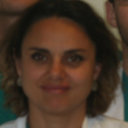Why should patients with systemic disease and tobacco smokers go to the dentist?
Palavras-chave
Resumo
Periodontal diseases (PD) affect about half of the adult population all over the world. PD is caused by bacterial infection which induces an inflammatory response with progressive destruction of the periodontal tissues and finally the loss of teeth. Tobacco smoking (TS), alcohol consumption, and systemic diseases (SDs), such as cardiovascular diseases, diabetes mellitus, respiratory diseases, osteoporosis, malnutrition and stress, are considered additional risk factors. This short review examines the potential causal association between PD, TS and SDs. There is strong evidence that PD is associated with an increased risk of SDs. In addition, many patients with SDs are also affected by PD, which can be mild or severe, and tobacco smokers manifest a greater risk of developing PD. The aim of this manuscript is to investigate the effects of periodontal therapy on the management of SDs and influence of TS on PD. This manuscript includes many randomized controlled trials and reviews to test the effects of different periodontal therapies for patients with SDs. A definite conclusion on the relationship between PD and SDs is lacking, however, there is sufficient evidence to justify periodontal treatment to prevent SDs; in fact, PD is prevalent in the middle-aged population and can have a significant impact on systemic health.





